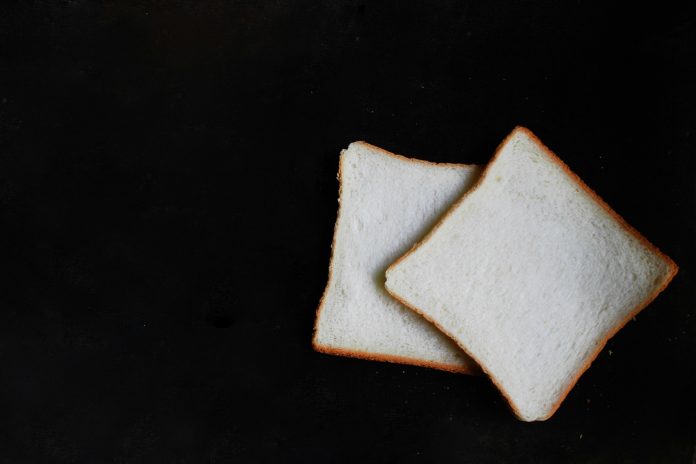In the quest for weight loss, many of us find ourselves navigating a labyrinth of dietary advice, each promising a slimmer waistline and a healthier life. Among the myriad of suggestions, one intriguing question often emerges: should you cut out dairy to shed those extra pounds? Dairy, a staple in many diets, is cherished for its creamy textures and comforting flavors, but it has also found itself at the center of a nutritional debate. Some swear by the weight-loss benefits of ditching milk, cheese, and yogurt, while others argue that dairy can be part of a balanced diet. In this article, we delve into the science, myths, and potential impacts of eliminating dairy, helping you decide whether this dietary change is the key to your weight loss journey or just another passing fad.
Exploring the Dairy-Weight Connection
The relationship between dairy consumption and weight management is a topic that has intrigued nutritionists and health enthusiasts alike. On one hand, dairy products are rich in nutrients like calcium and vitamin D, which are essential for bone health. On the other hand, some dairy products can be high in calories and saturated fats, which might be counterproductive for those looking to shed pounds. The question arises: Is dairy a friend or foe when it comes to weight loss?
- Caloric Content: Full-fat dairy products can be calorie-dense, potentially hindering weight loss efforts if consumed in large quantities.
- Protein Power: Dairy is a good source of protein, which can help with satiety and muscle maintenance during weight loss.
- Lactose Sensitivity: Some individuals may experience bloating or discomfort due to lactose intolerance, which can affect weight management indirectly.
- Calcium’s Role: Adequate calcium intake might support metabolic processes that aid in fat loss.
Ultimately, the decision to cut out dairy should be personalized, taking into account individual dietary needs, health conditions, and lifestyle goals. Exploring alternatives like plant-based milks or low-fat dairy options might offer a middle ground for those seeking to balance nutrient intake with calorie control.

Nutritional Impacts of Eliminating Dairy
Eliminating dairy from your diet can lead to significant changes in your nutritional intake. Dairy products are a primary source of essential nutrients such as calcium, vitamin D, and protein. When you cut out dairy, you may need to find alternative sources for these nutrients to maintain a balanced diet. Consider incorporating the following into your meals:
- Leafy greens like kale and broccoli for calcium.
- Fortified plant-based milks for vitamin D.
- Nuts and seeds for protein and healthy fats.
However, it’s important to note that some individuals may experience positive changes such as reduced bloating and improved digestion when they eliminate dairy, especially if they are lactose intolerant or have a dairy allergy. By carefully selecting alternatives, you can still achieve a nutritious diet that supports your weight loss goals without compromising on essential nutrients.

Alternatives to Dairy for a Balanced Diet
Embracing a dairy-free lifestyle doesn’t mean compromising on nutrition. A myriad of nutritious alternatives can seamlessly fit into your diet, ensuring you receive essential nutrients while exploring diverse flavors. Consider incorporating plant-based milk options like almond, soy, or oat milk, which are often fortified with calcium and vitamin D. These options not only provide the creamy texture of traditional milk but also offer additional nutrients.
For those who enjoy yogurt or cheese, there are equally satisfying substitutes. Dairy-free yogurts made from coconut, almond, or cashew milk can be a delightful addition to your breakfast or snack routine. When it comes to cheese, explore options like nut-based or soy-based cheeses that melt and taste remarkably similar to their dairy counterparts. Moreover, don’t forget about the versatile use of nutritional yeast, which can add a cheesy flavor to your dishes without any dairy content.
- Almond Milk: Great for smoothies and cereals.
- Cashew Cheese: Perfect for spreads and sauces.
- Coconut Yogurt: Ideal for a creamy texture in desserts.
- Oat Milk: Excellent for coffee and baking.
- Nutritional Yeast: Adds a cheesy flavor to various dishes.

Practical Tips for a Dairy-Free Lifestyle
Transitioning to a dairy-free lifestyle can seem daunting, but with a few practical tips, it can become a seamless part of your daily routine. Here are some strategies to help you make the shift with ease:
- Explore Alternatives: Stock your pantry with a variety of plant-based milk options like almond, soy, and oat milk. They are versatile and can be used in cooking, baking, or just for your morning coffee.
- Read Labels Carefully: Dairy can hide in unexpected places such as dressings, sauces, and snacks. Familiarize yourself with terms like “casein” and “whey” to ensure you’re truly dairy-free.
- Get Creative in the Kitchen: Experiment with new recipes that celebrate fresh produce, grains, and legumes. Embrace the opportunity to discover vibrant, nutrient-rich meals that don’t rely on dairy.
- Plan Your Meals: Being prepared is key. Having a weekly meal plan can help you avoid last-minute dairy-laden choices and keep you on track with your dietary goals.
- Seek Support: Join online communities or local groups where you can share experiences, recipes, and tips with others who are also embracing a dairy-free lifestyle.
By incorporating these tips, you’ll not only be able to manage a dairy-free diet effectively but also discover a world of flavors and foods that may have previously been overlooked.
Wrapping Up
In the ever-evolving landscape of nutrition and wellness, the question of whether to cut out dairy for weight loss remains a personal journey rather than a one-size-fits-all answer. As we navigate the aisles of grocery stores and the pages of diet books, it becomes clear that our bodies are as unique as our preferences. While some find liberation and lightness in a dairy-free path, others discover balance with moderation. The key lies in listening to your body, understanding its needs, and making informed choices that resonate with your lifestyle and goals. Whether you choose to embrace dairy or explore alternatives, remember that the journey to wellness is a marathon, not a sprint. As you step forward, may your choices be guided by both wisdom and compassion, illuminating a path that is uniquely yours.


































